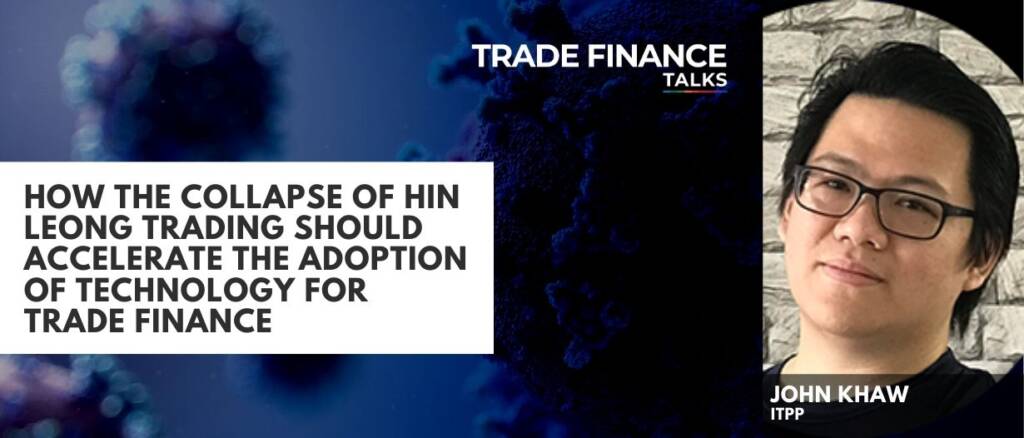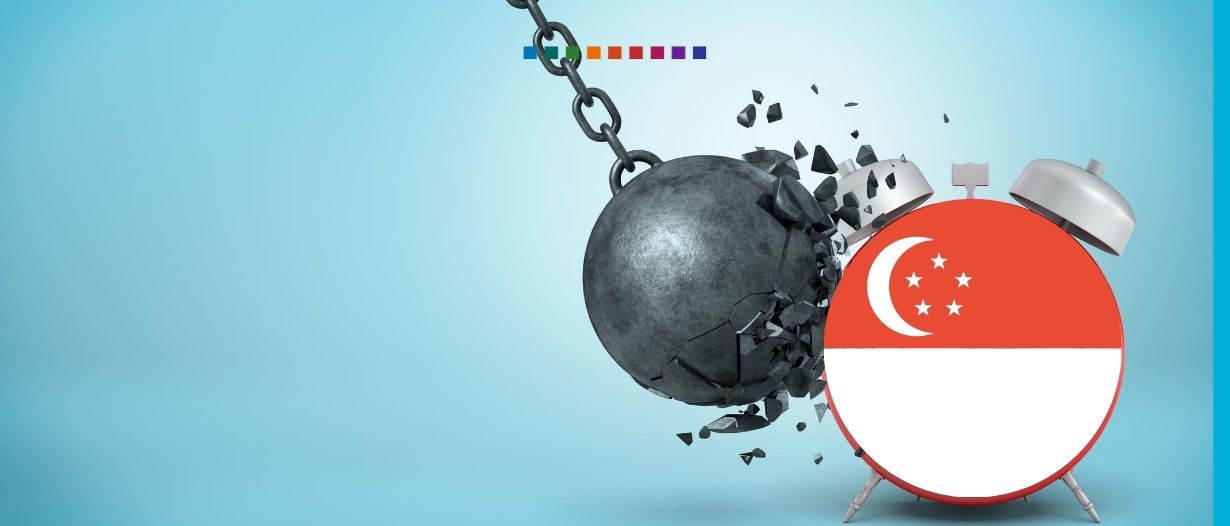Barings Bank collapse. China Aviation Oil losing $550 million in oil derivatives. Olam’s alleged accounting practices by Muddy Waters. Noble Group’s demise. BSI Bank and Falcon Private Bank’s involvement with Malaysia’s 1MDB scandal. Petro-Diamond losing S$314 million in oil trade due to a rogue trader. The 2020 commodities scandals of Agritrade, Hin Leong, Zenrock, Sugih Energy and Hontop Energy. These financial scandals have one thing in common. They happened on Singapore’s shores, a wealthy city-state that has long cemented its position as one of the world’s largest financial hubs. With a reputable central bank financial regulator, the Monetary Authority of Singapore (MAS) and Singapore’s prestige for transparency and strong adherence to the rule of law, many have questioned on its collective effectiveness in the face of the string of scandals that has happened under its watch. Would the latest commodities scandal in 2020 finally serve to dent that reputation that Singapore has long worked hard to achieve?

The Commodities Saga
The conversation surrounding the recent commodities saga is nigh inseparable from the oil price crash sparked by the drop in demand due to the once-in-a-century pandemic that is the COVID-19. Whilst the pandemic itself is not directly responsible for many of the financial troubles faced by these companies in the way it has affected businesses in the tourism and hospitality sectors, one can argue that the pandemic, in combination with other macroenvironment factors, only served to uncover what many have suspected as unscrupulous practices by some irresponsible commodity traders that have ran unchecked due to abundant liquidity in the market.
At the height of the commodities financing era just several years before 2020, financial institutions and banks have long regarded trade finance as one of the most secure asset-backed financing classes and as a result, many did not bat an eye on the swelling liquidity and voracious demand appetite of the players in this space. Banks often held elaborate events and presentations to court commodity traders to be one of their panel bankers and when selected, the relationship managers are like rock stars in the transaction banking department of many banks. It does not help that in some trade finance operation departments, the final decision to proceed or waive irregularities often fall upon the front desks, whom one could argue that turning down transactions with suspected red flags could mean losing a particular deal (along with the associated year-end bonuses tied to revenues they brought in). This conflict of interest, while may not persist today in many banks, were once the norm in the modus operandi of many in the industry.
The kneejerk reactions starting with Hin Leong’s revelation were swift, with liquidity drying up quickly for players in the space and requests for letter of credit issuance were met with stringent criteria such as full collateral. With lenders imposing more collateral and lending criteria, coupled with rising financing costs, the domino effect of such measures would squeeze out the smaller players and may force consolidation in the mid-to-longer horizon in the commodity trading industry in Singapore.
ARTICLE: How the collapse of Hin Leong Trading should accelerate the adoption of technology for trade finance

Fallout Unlikely, Scramble Continues
While the total amount purportedly owed by Hin Leong ran up to billions which may seem alarming by everyman standards, they are infinitesimal in the grander scheme of things. As an example, DBS had the largest exposure at $411m among the local banks in Singapore and yet, the sum owed only constituted 0.11% of its own loan book, based on its loan book figures reported in December 2019. HSBC was owed $850m and this amount only formed 0.0005% of its $1,471bn loan book. So, while the recent events triggered moments of self-reflection among many of the trade finance banks, the truth is many of them will survive and a few would just de-risk and exit the business altogether, as evidenced by actions taken by Société Générale and ABN Amro recently.
Banks are still scrambling to recoup their losses from the aftermath of the recent scandals, from OCBC’s application to place Xihe Holdings (the vessel-owning business linked to Hin Leong’s founder Lim Oon Kuin) under judicial management to recently, BCP’s (Banque de Commerce et de Placements SA, DIFC Branch) legal suit against China Aviation Oil (CAO) in connection to a fraudulent transaction with Zenrock Commodities. The latter example is an embodiment of just how far banks would go, no matter how improbable, to recover their monies. CAO has refuted BCP’s allegations and interestingly, mentioned that they were paid by their confhirming bank instead of directly from BCP. According to UCP600, the global rulebook used in the issuance of letters of credit, issuing banks (BCP, in this instance) are obliged to reimburse confirming banks upon complying presentation of stipulated documents and past legal cases such as Fortis Bank S.A./N.V. and Stemcor UK Limited v Indian Overseas Bank have long affirmed confirming banks and nominated banks in respect of their right to reimbursement from L/C (Letters of Credit) issuing banks. With this in hindsight, it would be easier to understand why BCP went down the path of alleging fraud on the part of CAO and pursue recovery from that perspective, instead of attempting recovery from the confirming bank and leaving them to recover from CAO instead.
An Unenviable Statistical Possibility
With between 60 to 80% of the world’s top oil, metals and agricultural companies operating in the city-state, it is a testament to Singapore’s global appeal due to its preferential tax regimes, availability of credit and favourable business conditions. This would also mean that commodity scandals would be far likelier to happen in Singapore compared to other hubs like Hong Kong. While this may be an unenviable statistical possibility, its likelihood also enabled Singapore to fast-track its learning process, improve its corporate governance oversight and go from strength to strength that has consistently empowered the city-state to be a global economic player despite its small geographical footprint.
The government response has been swift in light of the commodities scandal revelation. The MAS has called upon the banks to resist unwarranted derisking and creating an unhealthy credit environment for businesses to survive against pandemic-driven recessionary pressures. They have also formed the Emerging Stronger Taskforce in May with the goal of identifying, assessing and providing recommendations to the Future Economic Council (FEC) that was tasked with charting Singapore’s recovery post COVID-19. Whilst the taskforce may be focused on post pandemic recovery, it is noteworthy that two members on the taskforce are Tan Chin Hwee, the Asia Pacific CEO of Trafigura and Sunny Verghese, Olam’s group CEO. The inclusion of prominent voices from within the commodity community has shown that the Singapore’s economic recovery efforts would undoubtedly hinge on the recovery of the commodities sector as well.
Banks, with support from several Singapore government agencies, have come together in July to set up a working group to adopt a set of best practices to lift lending standards and improve transparency in hopes of preventing another seismic event like Hin Leong’s. Collaboration on this scale with regards to lending practices is unprecedented and many in the industry have hoped that this would finally put the end for another major scandal within the commodities sector in the years ahead.
Conclusion
So no, the recent commodity financial scandals would not dent Singapore’s reputational armour. Maybe just minor scuffs, probably. And anyone with car ownership experience would know that a good polish would erase minor scuffs and provide a fresh new layer of protection over the previously-affected surface. The government and the wider industry have shown rapid intent and has taken steps to learn from the recent events to truly emerge stronger together from it. If anything, the recent events have only served to show that strength and resilience can only emerge from collaboration and teamwork, instead of a siloed and individualistic approach in the past. Maybe the pandemic does have something to teach all of us, beyond washing hands more frequently, after all.































